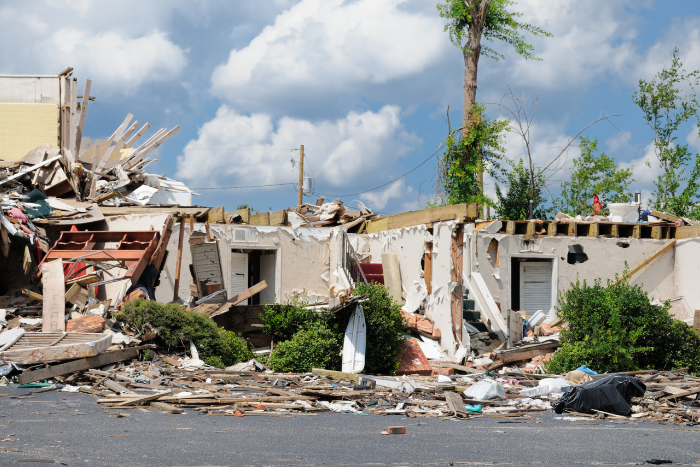At the second meeting of the Loss and Damage Fund’s board, the Philippines was chosen to host the fund board in Songdo, South Korea. The fund was created by the UN to provide financial help for countries to rebuild from the impact of global warming. The World Bank’s move to act as interim host was opposed by some countries who voiced concern that allowing it to host would give donors, including the United States, which appoints the World Bank’s president, too much influence.
The board is addressing key issues such as funding from donors, how to disburse the fund and who pays for loss and damage (L&D), one of the most intractable issues at UN climate talks. Developed countries blamed for historic emissions have been nervous about the bill for redressing damage they might face. COP27 in Egypt in 2022 established the fund, but did not decide on detail.
The board will decide on the aspirations and the vision of the L&D fund. Campaigners are opposed to the US framing of the “business model” for fund, reminding that the L&D Fund is a fund, not a bank and decisions must be conducted through the lens of equity and climate justice to those who are bearing the brunt of climate change for no fault of their own. The L&D Fund should provide grants and not impose further harm through debt-creating instruments, the campaigners say.
World Bank approves $1.5 bn loan to support India’s green hydrogen push
The World Bank approved a $1.5 billion loan to “promote a market for green hydrogen, electrolysers, and increased renewable energy penetration” said the bank statement reported by Business Standard. This is the second round of funding from the WB for India’s green energy push. In June 2023, it approved $1.5-billion to accelerate India’s development of low-carbon energy.
The Centre also launched the ₹17,000-crore National Green Hydrogen Mission to promote manufacturing of electrolysers and green hydrogen.
The fund will help subsiding battery energy storage solutions and improve RE integration by amending the Indian Electricity Grid Code, the WB said. The first $1.5-billion loan supported the waiver of transmission charges for renewable energy in green hydrogen projects, the issuance of a clear path to launch 50 GW of renewable energy tenders annually and creating a legal framework for a national carbon credit market.
The loans are expected to result in the production of at least 450,000 metric tonnes of green hydrogen and 1,500 MW of electrolysers per year from FY25-26 onwards, WB said. The financing for the operation includes a $1.46-billion loan from the International Bank for Reconstruction and Development (IBRD) and a $31.5-million credit from the International Development Association (IDA), the Business Standard reported.
European carbon removal companies eye investments in projects in India
European carbon removal companies will help Indian businesses develop projects that suck carbon dioxide out of the atmosphere and mitigate global warming, The Reuters reported. The Amsterdam-based group, called remove, will help Indian start-ups. The group helped businesses to raise more than 220 million euros ($238 million) to support carbon dioxide removal (CDR) projects throughout Europe.
“We believe this is a global problem and there is tremendous potential in other geographies beyond Europe.” CDR refers to a wide range of interventions that sequester CO2 that has already been emitted. It includes reforestation and filters that extract carbon directly from the air.
Indian projects are expected to focus on charcoal produced from burning organic matter — as well as “enhanced weathering”, where materials like basalt are spread across land to absorb CO2. Around 7-9 billion metric tonnes of CO2 need to be removed annually to keep temperature rise below the key 1.5°C threshold, up from 2 billion tonnes currently, researchers have said.
Proposed coal mine threatens Mirzapur forest, home to protected animal species
Environmentalists alerted the Centre about large-scale clearing of vegetation using heavy machinery, and construction of roads and other structures in a forested area adjoining Dadri Khurd in Marihan Range of Mirzapur Forest Division of Uttar Pradesh. The area risks being developed under the terms of a new law passed last year, HT reported.
The activists alleged that the deemed forest land is under consideration for an Adani thermal power project. The FC Amendment Act or the Van (Sanrakshan Evam Samvardhan) Adhiniyam 2023, which was passed last year, exempts unrecorded deemed forests altogether from its purview, paving the way for their diversion for various infrastructure and other projects, the report stated.
Activists said the area is part of the proposed Sloth Bear Conservation Reserve and is a crucial habitat for exceptionally rich and threatened wildlife of the savannah and tropical dry deciduous hill forests of the unique Vindhyan-Kaimoor ecosystem.
US: Biden launches first-ever extreme-heat rules for workplace
US president Joe Biden launched a first-ever federal workplace standard for extreme heat, and “railed against” Republicans working to repeal his climate measures, the Guardian reported. According to the newspaper, Biden said extreme heat was the largest weather-related killer in the US, adding: “More people die from extreme heat than floods, hurricanes and tornadoes combined.” Biden said the new plans, if finalised, “will substantially reduce heat injuries, illnesses and deaths for over 36 million workers…construction workers, postal workers, manufacturing workers and so much more”.
About The Author
You may also like
Litigation increases legalisation of protection against climate threats: Report
What COP30 reveals about the next phase of multilateralism
EU to waste billions on hydrogen pipelines in new PCI list, warns experts
India needs targeted public finance to scale green steel production
India Pushes for Critical Minerals Circularity and Collective Action on Climate at G20

